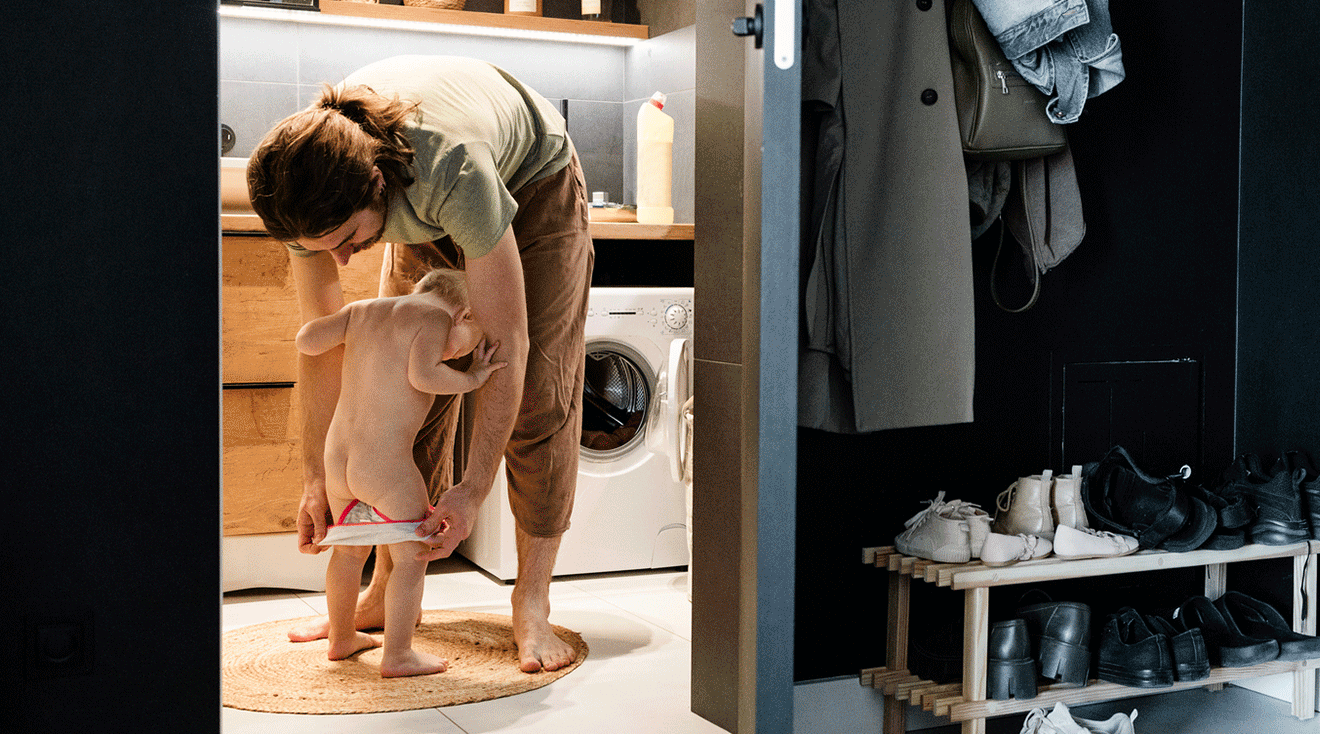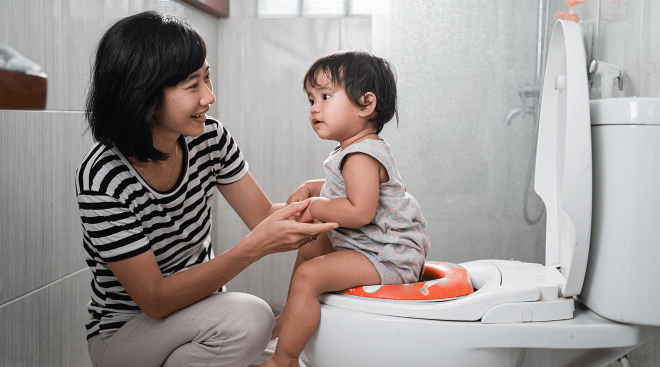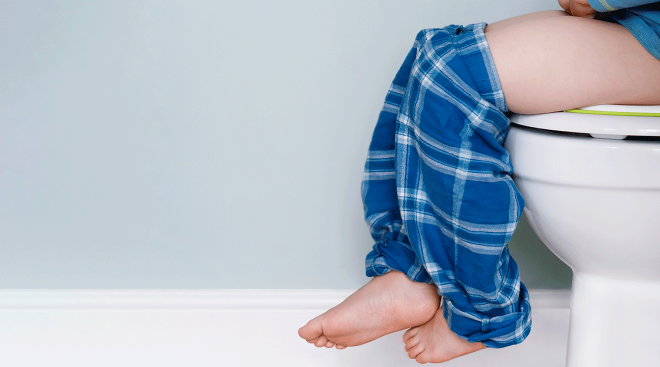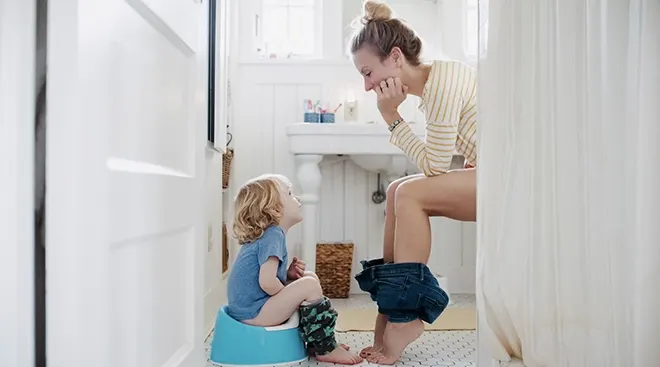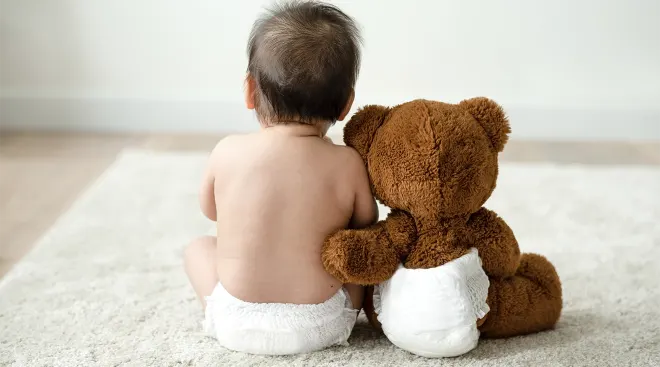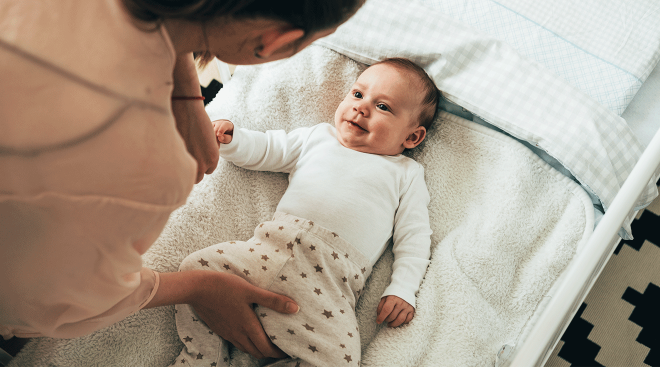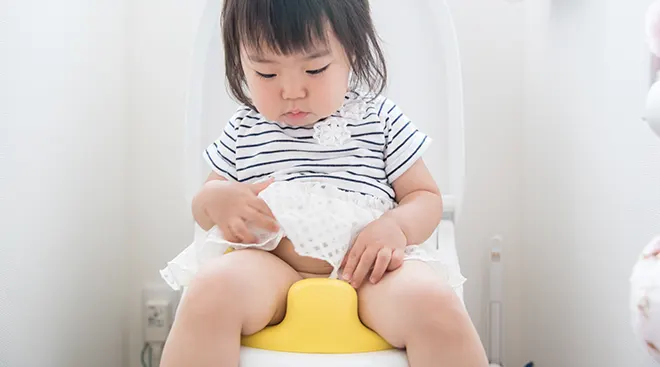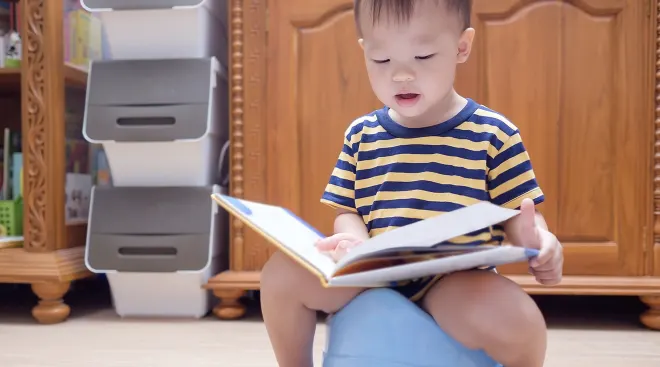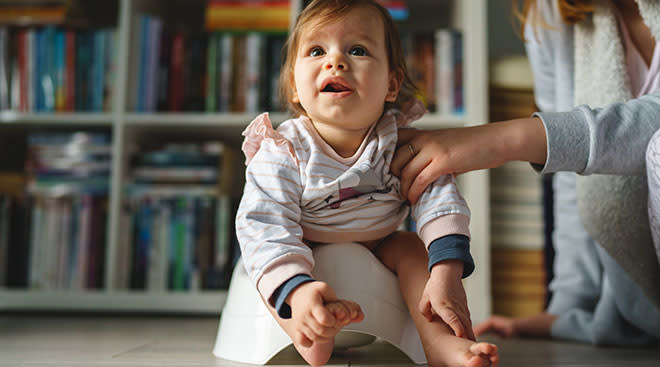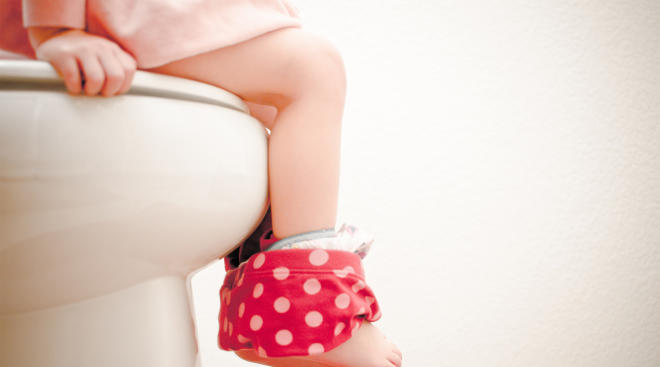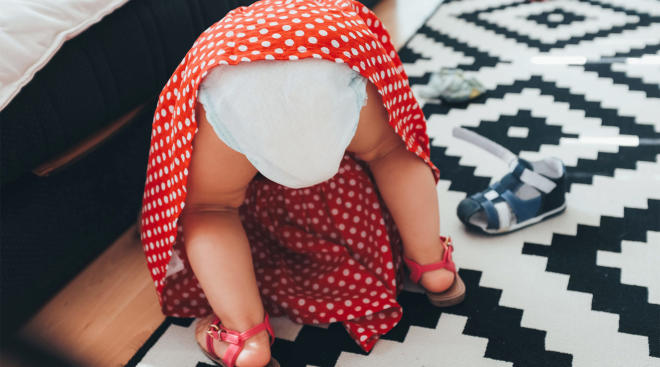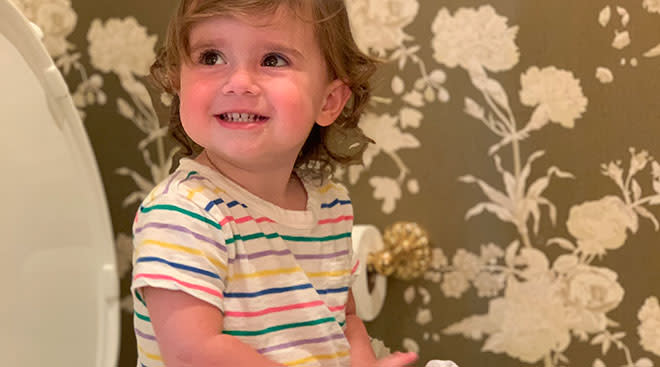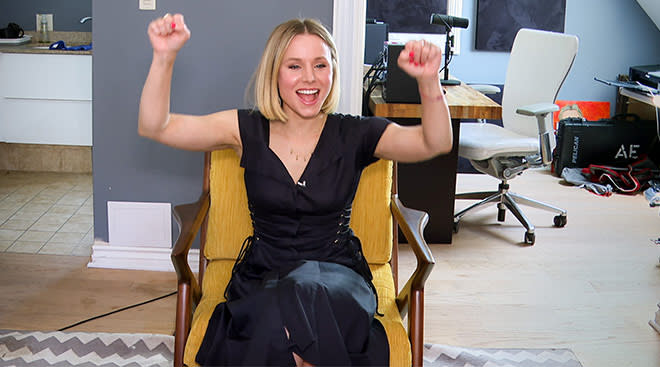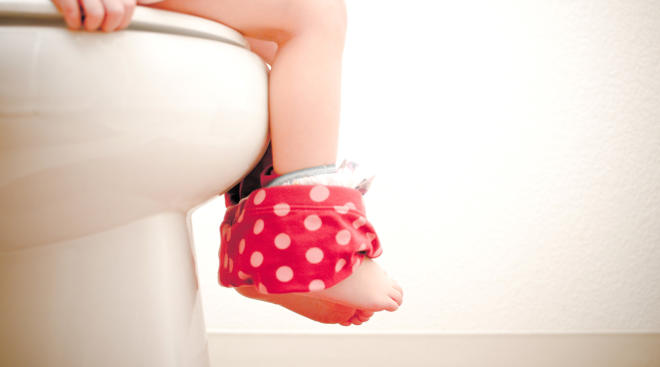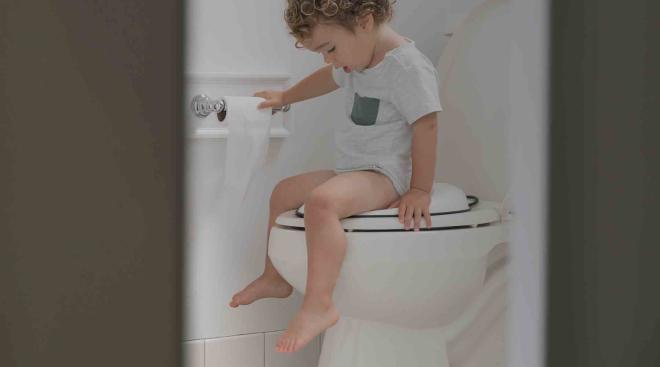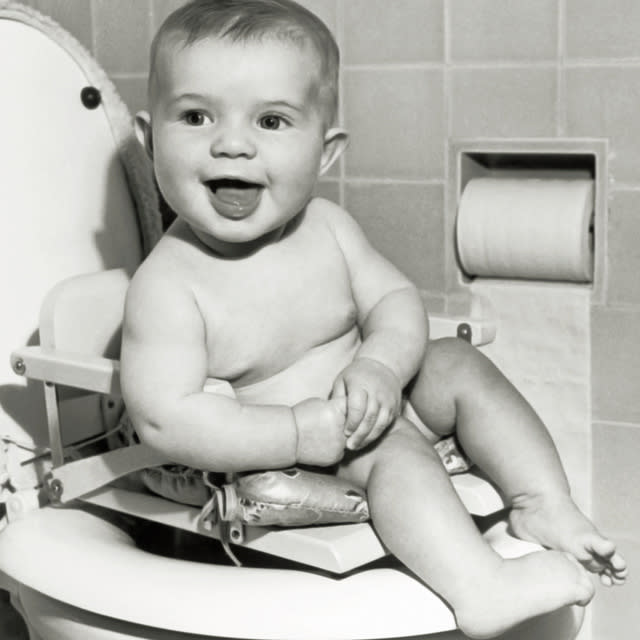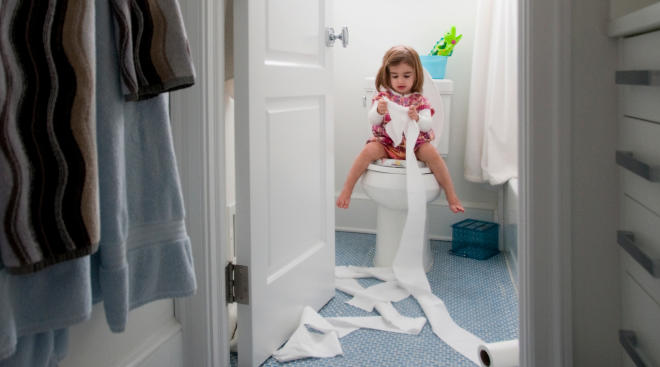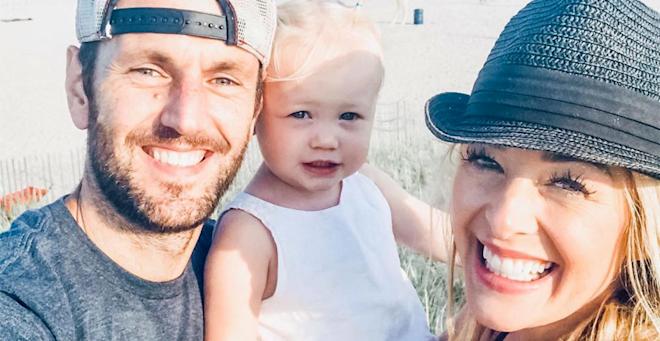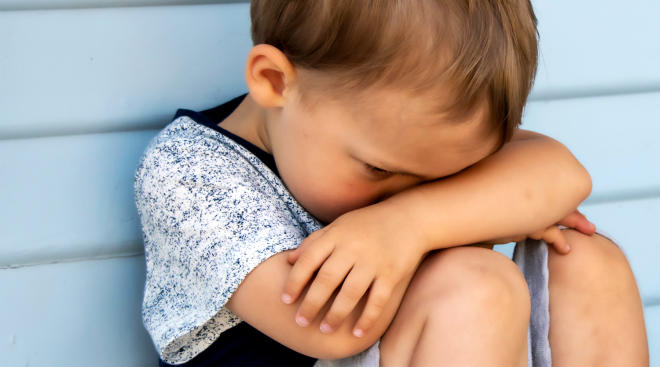Tips and Tricks for How to Handle Potty Training Regression
The teeny travel potty is packed away in storage. The M&M rewards are done with. The leftover daytime diapers have long been donated. You thought potty training was behind you. And then—boom—a pee accident. And then another. And, gasp, still more! Is it a to-be-expected hiccup on the road to total potty independence, or could it be potty training regression? Either way, don’t panic. You and your little one can—and will—get right back on potty-trained track. Here’s what to know about potty regression, straight from the experts.
As the name suggests, potty training regression occurs when a child who has been successfully potty trained begins to have accidents or even asks to wear diapers again, explains Elizabeth Cilenti, MD, MPH, a pediatrician with Northern Virginia Family Practice. That said, potty regression shouldn’t be confused with learning, progress and setbacks. “Parents often believe that accidents mean a child is experiencing a potty training regression, but really, it might be that the child hasn’t been fully potty-trained yet,” says Steve J. Hodges, MD, associate professor of pediatric urology at Wake Forest School of Medicine in Winston-Salem. In fact, to be considered a true potty regression, the seemingly potty-trained child would start having accidents about six months or more after being done with daytime diapers. Those before-six-months piddles and puddles? That’s all part of learning.
Is potty training regression normal?
There are several reasons why your kiddo might be regressing in potty training (more on that below), but rest assured it’s completely normal. “It’s very common for kids to have setbacks as they learn a new skill,” Cilenti says. “Being fully toilet trained is a complicated developmental process, and it takes a lot of work from both kids and parents.”
While toilet training regression can occur at any age, Cilenti notes it’s most common in toddlers. What’s more, per the American Academy of Pediatrics (AAP), studies have shown that 15 percent of kids ages 5 to 7 may still wet the bed (more on this later). By 15 years old, less than one percent wet the bed.
First and foremost, you want to make sure out-of-nowhere accidents aren’t due to a physical or medical issue, such as a urinary tract infection, diabetes or other disorder that may require a doctor’s attention, the AAP notes. If you’ve ruled out a medical cause, experts say there are some other reasons your child might be experiencing potty regression, including:
- Constipation or withholding. This isn’t quite the not-enough-fiber kind of constipation (though that certainly has wetting consequences too). “Instead, it’s when a child decides not to poop when they need to,” Hodges says. Here, kids squeeze their sphincter and hold in poop, thinking it’ll just come out later—but unfortunately, that’s not how it works. Holding it in dries out the stool to the point where it becomes impacted and then pushes on the bladder. “The whole process stretches the colon too, and starts to deaden the child’s got-to-go reflexes,” Hodges explains.
- Stressors. “One of the main causes of potty training regression is stress and anxiety,” says Adriana Vermillion, a professional potty training instructor in Charlotte, North Carolina, known as the “Potty Whisperer.” These stressors can encompass things like sudden changes or transitions—anything that changes your child’s routine, such as getting a babysitter, moving to a new home, an illness or parents’ divorce. “Even things that your child is very excited about can be stressful and result in potty training regression,” Cilenti adds.
- A new sibling: Related to the above, Cilenti cites this as a common trigger for potty regression. “Between a big change in routine, seeing baby getting lots of attention and using diapers, sometimes older siblings will experience a regression or even ask to be in diapers again like the baby,” she says.
- A new school. This is another example of changes in your child’s routine. When a child is introduced to a new environment where they don’t feel totally comfortable using the bathroom, accidents can happen. “When there are more barriers to pooping and peeing, like when a child needs to ask permission to use the bathroom or they’re nervous about going to an unfamiliar bathroom, problems can start,” Hodges says. Here, kids withhold all day, leading to accidents later.
- Distractions. When kids are busy playing or engrossed in Paw Patrol, for example, they can either do the old sphincter-squeeze and set off the domino effect for later accidents, or straight up not notice the urge to urinate until it’s too late.
Wondering if toddler potty training regression is tied to sleep regression? Cilenti says it could be, as both are triggered by a change in the child’s routine or by stressors. “It’s possible for the two to happen at the same time,” she notes.
Learning to use the potty during the day is different from waking from sleep to go use the bathroom at night. “Bed-wetting is still very common up to about age 4 or 5,” Hodges says. “It often takes longer for kids to acquire that skill.” When a child is asleep, the AAP and experts say the following factors can hinder their ability to get to the potty in time:
- A small bladder. A child’s bladder is still growing and likely still not big enough to hold urine throughout the night.
- Ongoing brain development. Nerve communication between the brain and bladder is still a work in progress.
- Deep sleep. Kiddos who are deep sleepers don’t awaken as easily to the signal of a full bladder.
- Excess urine. Sometimes the child’s body makes too much nighttime urine.
- Constipation. Fecal impaction can put pressure on the bladder, causing spasms and night-wetting.
Dry nights take time—and patience. “As long as your child is doing okay during the day, I wouldn’t worry about it much—yet,” Hodges says. But if nighttime accidents continue past the five-year mark, talk to your child’s pediatrician or a pediatric urologist.
Unfortunately, there’s no set timeline for how long potty regression can last; a lot of it can depend on what’s causing the regression in the first place. While some kids may be able to get back on track quicker, others may take a longer time. However, if you find yourself stuck, it’s worth it to reach out to your pediatrician. “If it’s been more than two weeks, or you feel like you’re having trouble helping your child, then it’s a great time to talk to your pediatrician,” Cilenti says.
Punishment will get you nowhere. “It’s very important for parents to stay positive at all times, especially since potty training regression is often rooted in shame, stress or anxiety,” Vermillion says. “Being negative will only make things worse and possibly make your child shut down.”
Another don’t: offering rewards. While giving a sticker for every tinkle in the toilet may have generated excitement in the past, it can easily backfire now. “It can create more anxiety,” Vermillion says. “Plus, real change can’t happen if it’s conditional on rewards. Your child needs to learn to self-motivate.” Use verbal rewards instead, and “celebrate any small wins, like asking to use the bathroom or successfully pooping on the toilet,” Cilenti adds.
Here’s what else you can do to address toddler potty training regression:
- Zero in on stressors. If you suspect stress or anxiety might be what’s triggering your child’s potty rewind, talk about it. (“Are you nervous about your new sibling’s arrival?”) “While not all children will be able to accurately use their words to express how they feel or what they may be going through, kids do show how they feel in their body language, sleep patterns and dietary changes, so it’s important to pay attention,” Vermillion says. Help your child communicate their feelings and offer reassurance.
- Investigate a new environment. If the toilet training regression coincides with the start of a new school or daycare, get a bathroom tour. Ask how and when children are allowed to use the potty, and talk to your child (and your child’s teachers) about how to make using the bathroom during the school day less stressful.
- Share your expectations. “Be gentle, clear and honest. Note what you’ve observed, how you feel and what you specifically need, and then make a request,” Vermillion says. Try something like, “I see you’re having accidents and that you’re wet, honey. I’d like you to stay dry, and I want to know how I can help you do that. Would you be willing to go potty in the toilet rather than in your pants?” As Vermillion explains, “This helps the child think and take responsibility.”
- Keep your cool. On a similar note, it’s important to talk to your child calmly and approach the situation from a place of kindness and compassion, rather than frustration. “Depending on the age of your child, they might be able to tell you what the problem might be—maybe they had a scary dream about the toilet—and communicate what they need to feel comfortable on the potty again,” Cilenti says.
- Look at your kid’s poop. “If your child is passing bitty balls or thick logs of poop, there’s a good chance constipation could be behind your child’s potty issues,” Hodges says. Try diet modifications like consuming high-fiber foods (i.e. prunes and pears), limiting binding foods (i.e. bananas and rice) and drinking lots of water. If your child still isn’t able to find relief, consult your pediatrician about possibly using a stool softener, such as MiraLAX.
- Reinforce potty rules. Set specific times your kiddo needs to go to the potty. “Follow the natural schedule of your child’s day, such as a morning routine that includes using the potty; using the potty before and after an activity, like going to the park; using the potty before and after a meal and before bedtime,” Vermillion says. “I also think it’s wise to encourage restroom use every two to three hours between morning, afternoon and evening use.”
- Seek help. If you’ve taken the time to give your child the necessary attention, support and encouragement and the potty regression continues after two weeks, it may be a good idea to either work with a potty training professional or schedule an appointment with the pediatrician or a pediatric urologist.
- Reassess. “If after re-adjusting your child’s routine, diet and support, potty training regression is still occuring at 12 weeks—and your child is between the ages of 18 and 36 months—it may be best to step back,” Vermillion says. “This can offer relief to everyone involved. Just don’t go backward by putting the child back in diapers.” Instead, Vermillion suggests saying less and observing more. “Continue to encourage underwear, but be prepared with extra towels and a change of clothes. Allow your child to create their own pace,” she says.
“Potty training is a natural process with starts and stops,” Hodges adds. “While it takes some time, there should be a regular progression of skills.” However, if you see it’s taking a lot of time for training to click, or your child just isn’t making progress, maybe you simply started too soon. “In my experience, between the ages of 3 and 4 is the ideal time to begin potty training,” Hodges says. During that third year of life, kids are more cooperative, more communicative and more physiologically able. “It’s difficult to teach a younger child because potty training isn’t just about learning to hold pee. It’s about teaching the child to empty their bladder in a timely manner,” he says.
Potty training regression is undoubtedly frustrating for parents—it takes you back to a challenging stage of parenting you thought was behind you. But take heart in knowing that it’s completely developmentally normal. Going to the bathroom independently is a skill that just takes time to learn, especially if your little one is also dealing with other changes. Rest assured that, sooner or later, your little one will be fully potty trained (no accidents involved).
Please note: The Bump and the materials and information it contains are not intended to, and do not constitute, medical or other health advice or diagnosis and should not be used as such. You should always consult with a qualified physician or health professional about your specific circumstances.
Plus, more from The Bump:
Elizabeth Cilenti, MD, MPH, is a pediatrician with Northern Virginia Family Practice. She completed her medical degree and residency at Indiana University School of Medicine and her master’s degree in public health at the Harvard T.H. Chan School of Public Health.
Steve J. Hodges, MD, is an associate professor of pediatric urology at Wake Forest School of Medicine in Winston-Salem, North Carolina, as well as co-author of the book, It's No Accident: Breakthrough Solutions to Your Child's Wetting, Constipation, UTIs, and Other Potty Problems. He earned his medical degree at Wake Forest University School of Medicine and completed his residency at Wake Forest Baptist Medical Center.
Adriana Vermillion, is a professional potty training instructor in Charlotte, North Carolina, known as the “Potty Whisperer,” with over 20 years of experience. She earned her degree from the International Baccalaureate Program of Mehadia, Romania.
American Academy of Pediatrics, Bedwetting: 3 Common Reasons & What Families Can Do, December 2021
American Academy of Pediatrics, Potty Training Regression, May 2022
Learn how we ensure the accuracy of our content through our editorial and medical review process.
Navigate forward to interact with the calendar and select a date. Press the question mark key to get the keyboard shortcuts for changing dates.
































